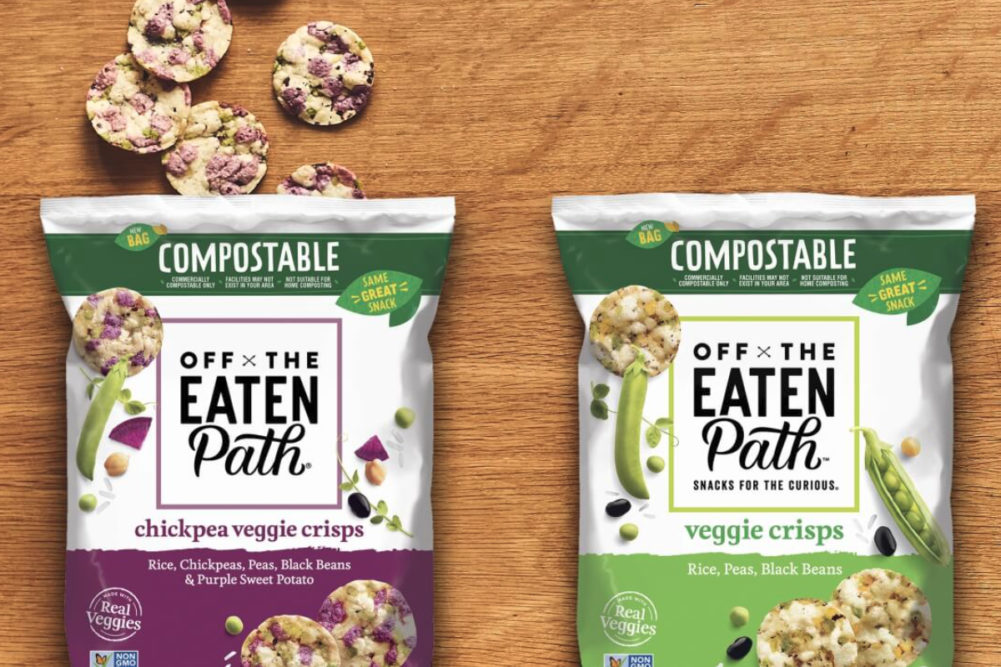plano, texas — The Frito-Lay North America division of PepsiCo, Inc. has taken a major step forward in reducing packaging waste with the introduction of a new industrially compostable bag for its Off The Eaten Path brand.
According to PepsiCo, the manufacturing process used to create the bags generates approximately 60% lower greenhouse gas (GHG) emissions than traditional packaging. The bags, which primarily are made from non-food, plant-based products, are currently available on specially marked Off The Eaten Path Chickpea Veggie Crisps and Off The Eaten Path Veggie Crisps at Whole Foods Market and select retailers starting this month.
“Frito-Lay recognizes the important role we play in driving toward a circular economy and reducing packaging waste,” said David Allen, vice president of sustainability at FLNA. “We are investing in plans to scale circular food packaging that is recyclable, compostable, biodegradable or reusable and sharing that technology to build a more sustainable food system for us all.”
In order to send the packaging to be composted, consumers are invited to sign up on the TerraCycle program page at https://www.terracycle.com/en-US/brigades/off-the-eaten-path-compost where they are given the choice to either mail in the packaging using the provided prepaid shipping label or locate a local composting drop-off location via the easy-to-use database.
“Since our founding, TerraCycle has made it our mission to ‘Eliminate the Idea of Waste’ and provide consumers with a simple process to responsibly dispose of the packaging generated from the items they use and consume every day,” said Tom Szaky, founder and chief executive officer of TerraCycle. “Through this composting program, consumers can demonstrate their respect for the environment by taking an active role in the end-of-life processing of their favorite brand of chip.”
The announcement comes a little more than a week after PepsiCo unveiled several sustainability commitments, including embracing regenerative agriculture, reducing virgin plastic use, further evolving its food and beverage portfolio by incorporating more diverse ingredients, and accelerating the reduction of added sugars and sodium in its products. Branded as pep+, the company hopes to achieve many of its goals by the end of the decade.
“Pep+ will change our brands and how they win in the market,” said Ramon Laguarta, chairman and CEO, said on Sept. 15.





